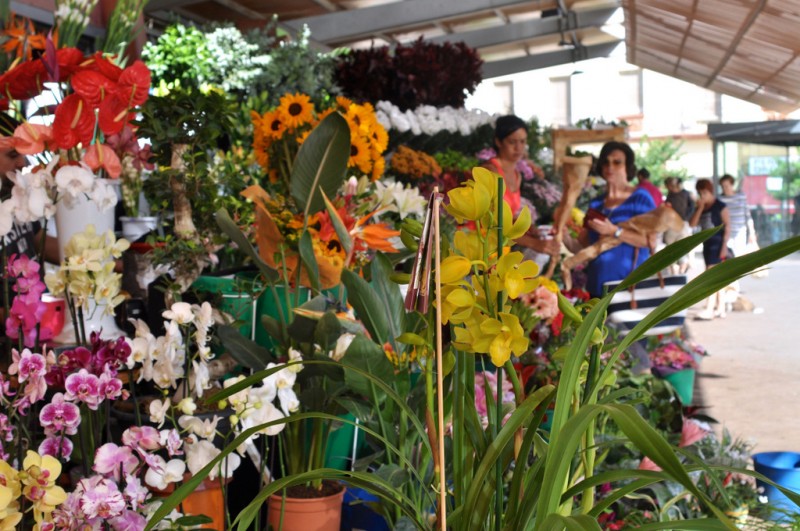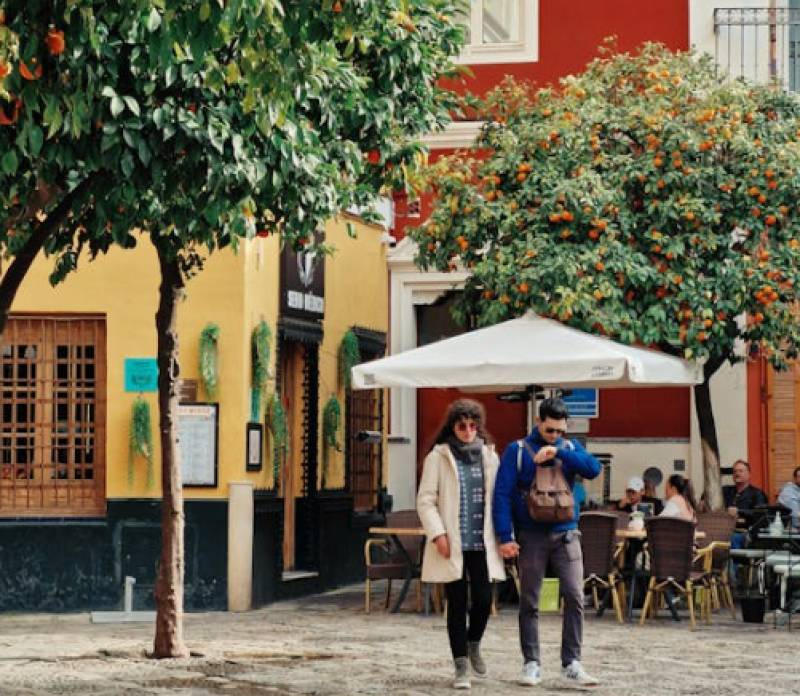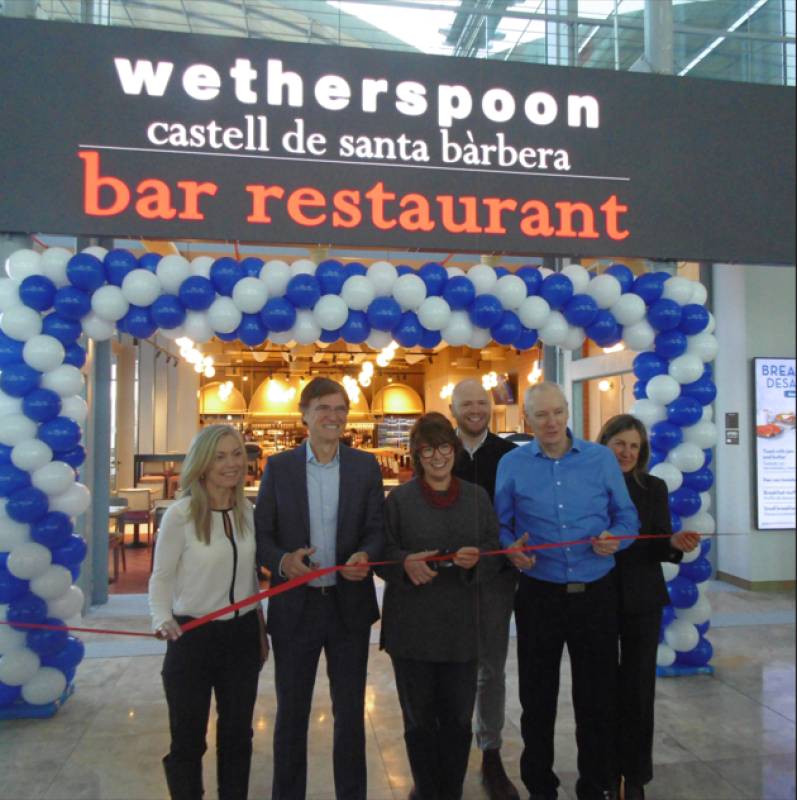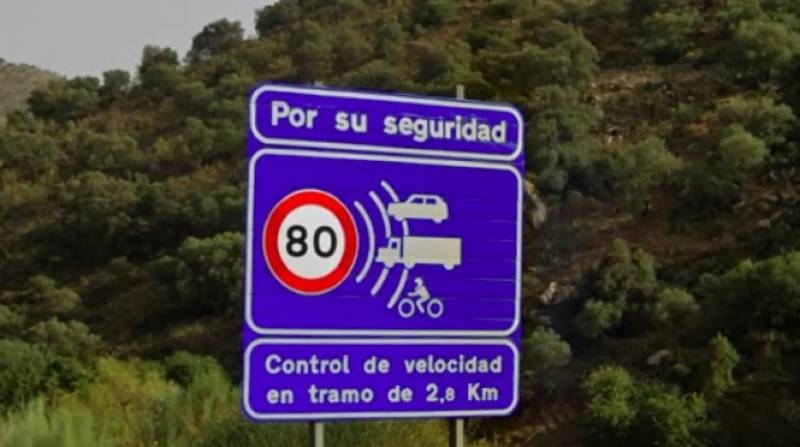

Guidelines for submitting articles to Hacienda Riquelme Golf Resort Today
Hello, and thank you for choosing Hacienda Riquelme Golf Resort.Today to publicise your organisation’s info or event.
Hacienda Riquelme Golf Resort Today is a website set up by Murcia Today specifically for residents of the urbanisation in Southwest Murcia, providing news and information on what’s happening in the local area, which is the largest English-speaking expat area in the Region of Murcia.
When submitting text to be included on Hacienda Riquelme Golf Resort Today, please abide by the following guidelines so we can upload your article as swiftly as possible:
Send an email to editor@spaintodayonline.com or contact@murciatoday.com
Attach the information in a Word Document or Google Doc
Include all relevant points, including:
Who is the organisation running the event?
Where is it happening?
When?
How much does it cost?
Is it necessary to book beforehand, or can people just show up on the day?
…but try not to exceed 300 words
Also attach a photo to illustrate your article, no more than 100kb

November 1 All Saints Day or El Dia de Todos los Santos in Alicante City
Flowers, candles and sweet cakes all play a significant part in the 'All Saints Day' celebrations
All Saints Day, or El Día de Todos los Santos in Spain, originates from the traditional Gaelic Festival of Samhain, celebrated from sunset on the 31st October to sunset on the 1st November.
The Celts divided the year into two parts, and this festival recognises the transition from the end of the harvest to the ‘darker’ winter, and commemorates the dead and the souls of the departed, which are believed to return to their homes.
When the Romans invaded the UK in 46BC they included the festival in their own annual calendar and it was then celebrated throughout the Roman Empire. By the 4th century it had evolved into a festival commemorating Christian martyrs, and in 615 Pope Bonifacio decided to convert a Roman Pantheon into a Christian church and dedicated it to “All the Saints”.
From here on an annual day was dedicated to All the Saints, and in 741 the date of All Saints Day was shifted to 1st November to coincide with the Celtic festival of Samhain, hijacking the Celtic festival date and turning the day into a Christian celebration. Over time, the Celtic festival and All Saint’s day merged to create the modern Halloween.
In 998, the French added an extra date, the 2nd November, for a special day to commemorate the souls of the faithful who had departed and the three dates, 31st, 1, and 2nd have been celebrated since.
All Saint's Day in Alicante (El Día de Todos los Santos)
In Alicante and the rest of Spain, All Saint’s Day is one of the most significant days in the annual calendar, when relatives visit the graves of the dead and honour them with flowers. Family members often light candles and stay together for hours to share the occasion before usually attending a special mass in church for all of the ‘Santos’.
Outside Alicante city’s main central market place, Mercado Central, the main flower market in Plaza 25 Mayo or 'Plaza de los Flores' becomes stocked up in the days leading up to el Dia de los Santos with the main flowers of the season; dahlias, chrysanthemums and carnations, as this weekend is one of the biggest in the year for flower sales.
You’ll also see stacks of white candles in red casings in all of the local supermarkets for sale in preparation for the occasion, ready to be lit either at the graves or in the comfort of the home to honour the loss of loved ones.
After visiting the graves families sometimes share a meal together at home and light more candles, and the day wouldn’t be the same without the sweet little cakes and pastries which are traditionally made to be shared on this day with the family.
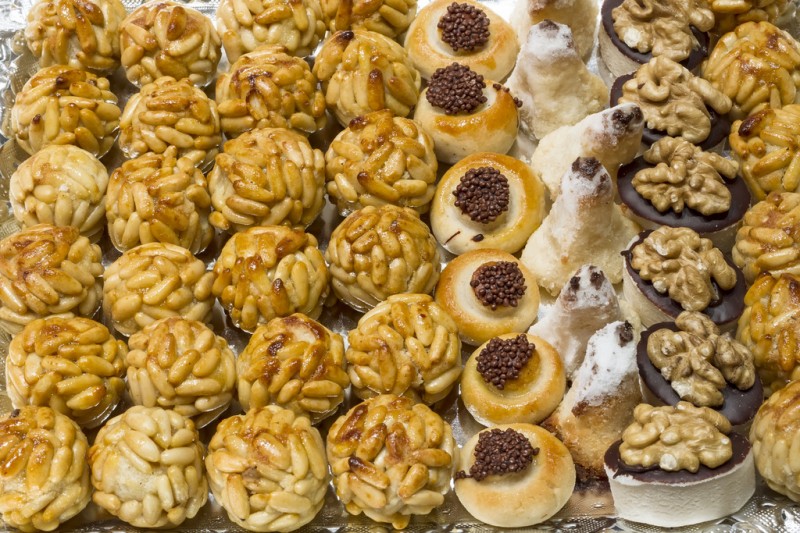
Here in Alicante we have a variety of cakes made using seasonal and traditional ingredients, including the sweet Huesos de Santo, literally meaning ‘Saint’s bones’, which are finger-sized, cylindrical shaped marzipan bites filled with a sweet egg yolk cream garnished with lemon and honey, and Panellets, which are small, ball-shaped marzipan cakes traditionally coated in pine nuts and cooked with egg. In addition, there are the popular ‘Buñuelos de Viento’, or ‘puffs of wind’ which are small sugary donuts sprinkled with cinnamon and sugar and filled with cream or chocolate.
Hallowe’en has also started to become a popular night in Spain, with a number of spooky parties and costume events taking place in the main cities. However, the huge commercialisation of Halloween night in the UK is yet to become a well-established part of Spanish life. All Saint’s Day, however, is a National Holiday in Spain, so most shops are closed.
Click for more information about Alicante City, including what to see, what’s on and useful local information
Sign up for the Spanish News Today Editors Roundup Weekly Bulletin and get an email with all the week’s news straight to your inbox
Special offer: Subscribe now for 25% off (36.95 euros for 48 Bulletins)
OR
you can sign up to our FREE weekly roundup!
Read some of our recent bulletins:
Discount Special Offer subscription:
36.95€ for 48 Editor’s Weekly News Roundup bulletins!
Please CLICK THE BUTTON to subscribe.
(List price 3 months 12 Bulletins)
Read more stories from around Spain:









